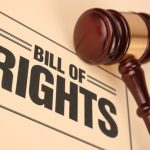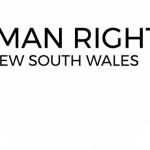The Need for a Bill of Rights: An Interview with UNSW Professor George Williams

On October 17, Australia won a seat on the United Nations Human Rights Council: the international body responsible for the protection of human rights around the globe. It’s hoped the nation’s new position might improve rights issues domestically. But, many aren’t holding their breath.
Australia has ratified the seven major international human rights conventions. This means the nation has pledged to uphold these rights both internationally and domestically. However, at the local level this hasn’t transpired.
A case in point
On August 13, 1980, Australia ratified the International Covenant on Civil and Political Rights (ICCPR). Article 22 of the agreement states that “everyone shall have the right to freedom of association with others.”
In 2014, three men challenged their consorting convictions in the High Court of Australia, claiming the laws infringed upon their right to association. Under NSW anti-consorting laws, it’s an offence for an individual to continue to associate with a convicted criminal if they’ve been warned not to do so.
The High Court dismissed the appeal, as it found the laws were valid as there is no such right to association. And it further rejected the claim that the laws conflicted with the ICCPR, as the international covenant is not Commonwealth legislation.
Consorting laws are just one example of how successive Australian governments have recently passed laws that have steadily encroached upon citizens’ basic rights. Another is the implementation of the government’s mandatory metadata regime, which infringes upon the right to privacy.
Protection of citizens’ rights
Australia is the only democratic nation in the world without a national charter or bill of rights. Such a bill would guarantee the rights of Australians are protected under the law. And it would also ensure that the country’s laws and policies are consistent with human rights standards.
The US bill of rights was enshrined in that nation’s constitution in 1791. But, over recent decades, nations, such as the United Kingdom, Canada and New Zealand, have enacted statutory rights bills.
The statutory model of a bill of rights has already been adopted in some Australian jurisdictions. The ACT passed the Human Rights Act in 2004, while the Charter of Human Rights and Responsibilities Act 2006 was enacted in Victoria.
An example of the Victorian act making an impact was when the City of Melbourne recently moved to pass by-laws to make it illegal for homeless people to sleep on the streets. The council abandoned the proposal after legal advice suggested the ban would be incompatible with the charter.
A bill of rights expert
UNSW Professor George Williams has been at the forefront of the push for a federal charter of rights for decades now. A Charter of Rights for Australia, the book he co-authored with Daniel Reynolds, has recently been fully revised and published in its fourth edition.
Sydney Criminal Lawyers® spoke with Professor Williams, Anthony Mason Professor and Dean of UNSW Law School, about why the need for a national charter of rights has become more pressing, the reason the nation is still without one, and the benefits a rights bill has brought to other nations.
Firstly, Professor Williams, you’ve been advocating for a charter or bill of rights for Australia for many years. Would you say the need for such a bill is becoming more urgent?
Yes, I think it is. The evidence shows that our parliaments are no longer exercising the sort of self-restraint they have in the past about democratic rights, particularly freedom of speech, but also association.
We see the criminalisation of protests through Tasmania, Western Australia and New South Wales. And we haven’t seen those laws since Queensland in the 1970s.
We also see a number of new offences at the federal level around national security, which can lead to the gaoling of journalists for up to ten years.
More broadly, the debate suggests a lack of sympathy for, and willingness to protect, what I would regard as basic citizens’ rights.
And what would you say the turning point was when the need for a bill of rights became more pressing?
One key turning point were the events of September 11, 2001. That led to an extraordinary reaction in terms of making anti-terror laws. We’ve now got 67 that have been enacted federally.
What’s happened since that time, is exceptional laws have remained on the statute book, but even more worryingly, we’ve seen them copied in other areas of law.
So, national security measures are emerging in organised crime, but also, even in areas like fisheries, and the regulation of public spaces.
That seems to have been a significant shift that has gathered pace over time.
Both the US and the UK have a bill of rights, although they operate differently. And like Australia, since the early 2000s, both those nations have enacted tighter national security and anti-terror laws.
Would you say there’s a difference to the laws those countries have enacted over that time, compared to Australia?
Yes, there is a significant difference. Certainly, the volume of laws passed here is far larger. But also, in key respects our laws go further.
Australia is the only democratic nation that I know of that gives its secret intelligence service ASIO the ability to detain non-suspects for up to a week. A non-suspect can be forced to answer questions, or be gaoled for five years.
We’ve got things like detention without charge for two weeks. We’ve also got free speech offences, which have no parallel in the US or the UK.
There are many things which are similar. But, the sharp end of it here is the sort of measures you won’t find in those other countries, because they have a backstop in the form of a national bill of rights.
The debate over a bill of rights in this country has been going on since the 1970s. And successive governments have been reluctant to even consider such a move.
What do you think is behind the reluctance of government to establish a national bill that would guarantee the rights of Australians under the law?
It’s not so much reluctance. It’s been tried many times. In fact, every Labor government has attempted this since World War Two: in the 40s, the 70s, and the 80s.
The Rudd government had a major inquiry that finished in 2010. It involved over 40,000 Australians. At that point, the biggest public process in our history. But then, the government imploded. Rudd fell and it just didn’t go anywhere.
It’s not through lack of trying. It seems to be political mismanagement. And indeed, it’s not a lack of community interest. The polling has consistently shown for recent decades 60 to 80 percent public support for this.
So, something in Australia has meant this hasn’t got done because of political dysfunction and problems. There’s no particular reason that we are that different to say the UK.
Australian Greens senators Richard Di Natale and Nick McKim announced in August that they will be introducing legislation for an Australian charter of rights.
However, I spoke with Andrew Wilkie last week and he introduced a similar piece of legislation into parliament in August, and found there was little support for it.
How much support do you think there is in the federal parliament at the moment for a bill such as the Greens are proposing?
Not enough. There’s clearly not the numbers there. If only because the Coalition is the governing party, and it’s not their policy to do this.
So, it would take a change of government for this to happen. And if that did happen, well, we’ll see.
The fourth edition of your book A Charter of Rights for Australia was recently published. What sort of charter of rights do you propose Australia should establish: a constitutional or statutory model?
The first stage is not constitutional. I think legislation that can be adapted and changed over time. The model that is already in the United Kingdom, New Zealand, the ACT and Victoria.
Those have worked well. They’re modest changes, but still have a meaningful impact. And over time, it gives us a chance to assess whether they should be further developed and changed.
I’d start there. I’m pretty pragmatic about it. Start there and work from that point.
And would the responsibility of ensuring that new laws are consistent with human rights fall upon the courts or the government?
Both. And indeed, under these models, the advantage is that you have all the arms of government. So, the executive takes it into account developing policy and in drafting laws. Parliament considers it in deliberating on the making of laws.
Courts have a role in interpreting those laws consistently with human rights. They also have a role if there is a breach to send it back to parliament to be considered again, and potentially for the law to be remade.
The UK has had a bill of rights for almost two decades now. The Human Rights Act was enacted in 1998.
What sort of changes has it brought about in that country?
It’s been quite fundamental in many areas. It’s certainly shaped their national security laws. More broadly, it’s affected criminal process.
The bigger impact is in less visible areas. It’s driven large policy change, whether it be in aged care, or people with disabilities, or the police. It meant that where government interacts with the community, they do so against a checklist of rights that the community believes to be important.
It’s very often just at that level that you see the biggest change. Just changing policies and practices to be more humane, more appropriate and in keeping with human rights.
Last month, Australia was elected to a seat on the UN Human Rights Council. Do you think this development will have any bearing on the government improving its human rights record domestically?
I would hope so. But, it’s not clear that it will. Australia has a long record of being an international champion of human rights, and not replicating that at home.
I’d like this to be different. But, I’m not sure it will be.
And lastly, many Australians believe their rights are protected under the law. You’ve pointed to a survey that found 61 percent of Australians actually believe this nation has a bill of rights similar to that in the US.
Do you think if more Australians were aware that many of the rights they take for granted aren’t protected, and are currently being encroached upon, that they’d be more of a groundswell of support to see this nation establish a charter of rights?
I don’t think people will see this as a front order issue. They are understandably focused on jobs, education and the like.
It’s one of those things that needs to be done to improve our structure of government. It needs political champions. I think people are broadly already in support.
The question is whether we have the political will to realise that through a new law.
Professor Williams, thanks very much for taking the time out to have this chat today.
Not at all. My pleasure.






